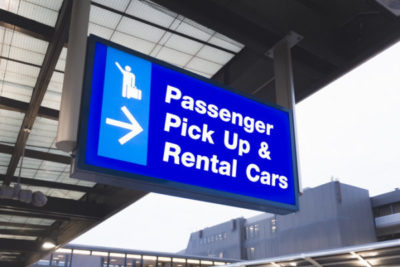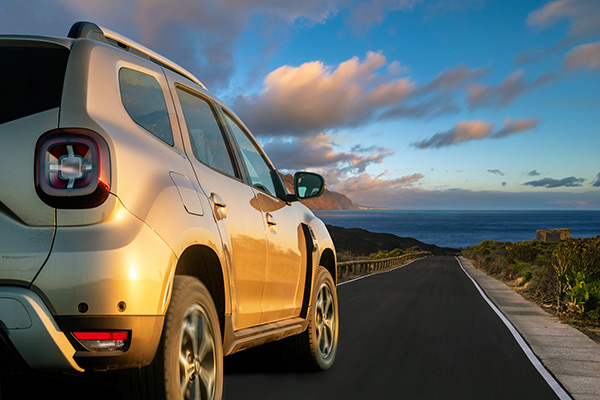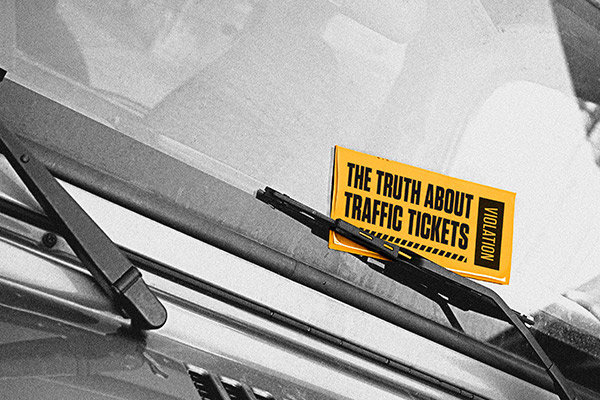

Imagine this: you’re standing at the rental car counter with a long line behind you. You got a great rate on a car for the week, and you’re ready to go on vacation with the family. Then, you’re handed a clipboard with an intimidating rental car contract filled with confusing insurance options. Suddenly, you wish you’d spent less time packing and more time researching rental car insurance.
Since rental car insurance isn’t something most of us deal with on a daily basis, it’s easy to get confused or overwhelmed when presented with a choice for this type of coverage.
Continue reading to learn some basic facts about rental car insurance and whether you’ll need extra coverage beyond your personal auto insurance policy.
Rental car insurance covers you when you rent a vehicle directly from a rental car company, such as Enterprise Rent-A-Car. When you’re renting a car at the airport or at another rental car location, you will be asked whether you want to add insurance to your rental or if you want to waive the insurance.
This coverage is not to be confused with rental reimbursement coverage, which is an add-on to your auto insurance policy that provides reimbursement for fees associated with a rental car in the event your own car is being repaired due to a covered loss or accident.
When it comes to the company you rent a vehicle from, car sharing platforms like Turo are handled differently than conventional rental car companies.
Coverage specifics for car sharing platforms vary by state. Before you decline coverage, be sure to check your policy or reach out to us to verify how your policy applies.
The most common question when it comes to renting a car for domestic travel is, “Do I need rental car insurance coverage?” The answer is: it depends. You want to make sure you and your rental vehicle are covered, but you also don’t want to pay for unnecessary duplicate insurance coverages that could double the price of your rental.
The first step is to check your auto insurance policy, or contact us to see what type of coverage for rental cars may already be included.The coverages you already carry on your personal vehicle, such as physical damage and liability coverages, typically extend to your rental car within the U.S. If an incident occurs, these coverages could help cover the damages to your rental car, as well as damages caused to others.
If you’re renting a car in the U.S. of similar value to your personal car, it is likely that your auto insurance coverage will be adequate for the rental. But if you’re off to a blowout beach weekend in a slick set of wheels like a sports car and you’re leaving your 2008 family sedanat home, purchasing the extra auto insurance coverage offered by the rental company may be a good idea.
When it comes to rental cars, your regular auto insurance often steps up to the plate. The coverage you have for your own car usually extends its protective wings over rental vehicles too, dealing with mishaps and damages alike. But here’s the catch: this safety net usually blankets personal use, not work-related ventures. It’s a good call to dive into the nitty-gritty of your policy and spot any potential gaps before you start thinking about extra rental coverage. Remember, odds are your insurance might not foot the bill for certain expenses like that sneaky “loss of use” fee charged by rental companies. And if your coverage has a few missing pieces, especially for luxury cars, nabbing a Loss-Damage waiver (LDW) from the rental company could give you that extra peace of mind.
Good news! Not having car insurance won’t put the brakes on your plans to rent a car, especially when you’re considering renting from companies like Enterprise. While it’s true that rental agencies roll out a variety of protection plans to shield you in case of an accident, there’s a catch. If you happen to be operating without personal auto insurance, you’ll likely be required to optin to some type of liability coverage. Think of it as your safety seatbelt for those just-in-case moments.
Many credit cards offer a level of rental car insurance when you pay for the entire rental with your card and decline additional coverage from the rental company.
The two main types of coverage are primary and secondary. Primary coverage handles damages to the rental car regardless of other insurances, while secondary coverage only kicks in after your other polices, such as your personal auto policy.
Both types usually cover rental vehicle damage, not liability. Make sure you have proper liability protection elsewhere. To ensure the details of your card’s benefits and coverage, reach out to your credit card company when using it for payment.

 What Is Covered Under A Typical Rental Car Insurance Policy?
What Is Covered Under A Typical Rental Car Insurance Policy?Most rental companies have a short, predictable suite of rental vehicle insurance offerings. It’s a good idea to know the policy of the rental company before you arrive at the counter. Check your personal auto insurance policy to determine if you’re already properly covered and are able to decline the offered coverage from the rental company.
Rental car insurance is usually broken out into the following coverages:
Comprehensive coverage helps cover the cost associated with non-collision-related damages to your vehicle, such as vandalism, theft, or weather.
Collision coverage helps cover the repair expense for your vehicle in case of an accident with another car or object.
This coverage typically extends to vehicles you rent and may negate the need to accept the Collision Damage Waiver (CDW) coverage from the rental car company. You should consider additional factors, such as the deductibles you carry for each of these coverages. See further for more details on Collision Damage Waivers.
Liability coverages, such as property damage and bodily injury, are a basic component of most car insurance policies. If you have adequate liability coverage on your own vehicle (check with your insurance provider), you may choose to skip this one.
First party medical coverages may pay your medical bills and lost wages if you’re injured in an accident.. As long as you have Personal Injury Protection or medical payments coverage on your auto policy and reliable health insurance, you may not need this coverage. It’s also a good idea to review any limits or deductibles related to these coverages before you decide.
This is not an insurance product, but rather a waiver that transfers financial responsibility from you to the rental car company in case of damage or theft. In most cases, collision damage waivers also provide coverage for “loss of use” if the rental car company charges for the time a damaged car cannot be used because it is being repaired.
Having a homeowners, renters or condo policy usually extends coverage for your personal items, even if they are stolen from a rental car. It’s important to be aware that the coverage kicks in only after any applicable deductible is met. Consider the value of the items you will be taking with you. If the cost to replace them is below your deductible, your policy won’t provide coverage.
Picture this: you’ve just landed in a sun-soaked paradise, collected your rental car keys, and you’re cruising with the windows down, soaking in the vibes. But then — an unexpected collision. While we’re not in the business of painting gloomy pictures, it’s essential to be prepared for every turn in the journey. If your current auto insurance policy doesn’t cover your rental, it might be wise to gear up with some additional coverage to protect your trip. On the flip side, if your personal policy has got your back, you might be good to go. Quickly reviewing your coverage details before hitting the road can guide you to a more informed decision.
Next steps: To learn more about your policy and rental car insurance, call us at 1-800-841-0728 or review your policy documents on geico.com. Or, if you’re looking for a new auto policy, compare car insurance and see why GEICO is the right choice.
SHARE THIS ARTICLE

Check out some new features and technology that can make your ride more fun and luxurious than ever, not to mention keep you safer on the road.


Do traffic tickets actually deter bad driving behavior? Learn the stats about common violations and just how important it is to drive defensively.

Check out these tips on how to strap and secure objects on top of you roof, and how to secure 4 common objects like mattresses and luggage.

Get expert advice on road etiquette with oversize and special vehicles like big rigs, buses, construction equipment, horse-drawn carriages and trolleys.

New connected vehicle technology helps make driving safer. Read more about how it can help you on the road.
Hi, I rented a car from budget & while driving on the highway the whole bumper fell off, I didn’t hit anything, no pothole, nothing I did to cause this issue! We stopped got it off the rest of the way & took the vehicle to the closest Budget Rental!!
So, it appears that CDW is what is probably best to buy when renting a car. Liability and PIP is covered by most policies. (it is in mine). This is very helpful so we don’t pay for insurance we don’t need. I’ll check with Chase Visa toto see if they add/provide any coverages.
I called Geico . The agent confirmed Geico car insurance doesn’t cover Turo. They don’t treat Turo as a rental company, since it doesn’t own the car. And he even emailed me a statement as a written proof.
I’m told personal insurance with Geico does not cover rental cars if the car rental is longer than 30 consecutive days.
I have a California auto policy with Geico and wanted to rent a car in Las Vegas, NV through Turo. Geico confirmed that they do not cover cars rented through Turo, at least with regard to my California policy. [3.7.22]
Turo is not covered! At least not for residents of many states (mine is Colorado)
I spoke with geico and had them send me the relevant coverage disclosures. It depends on where your policy is issued and most states have language that specifically excluded Turo.
How does your uninsured motorist coverage apply if there is an accident while driving a rental car and the person at fault is not insured